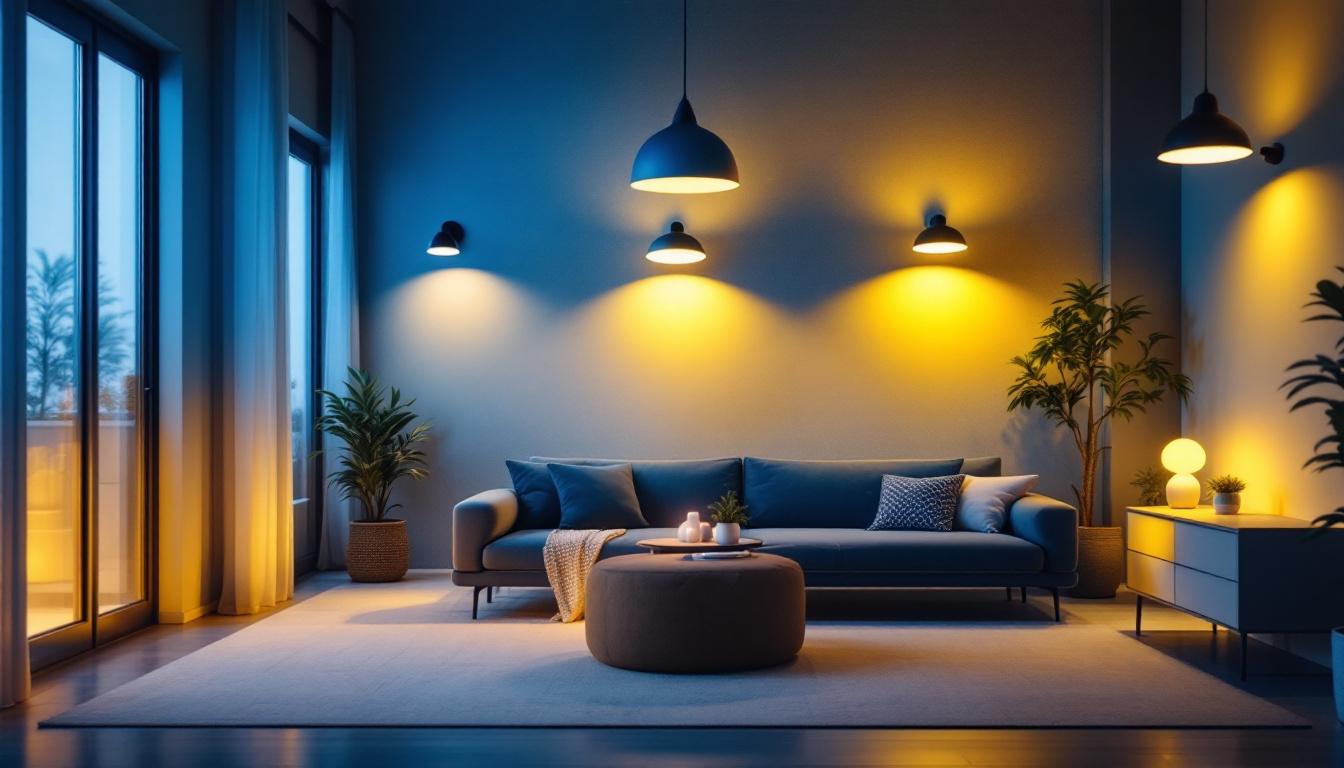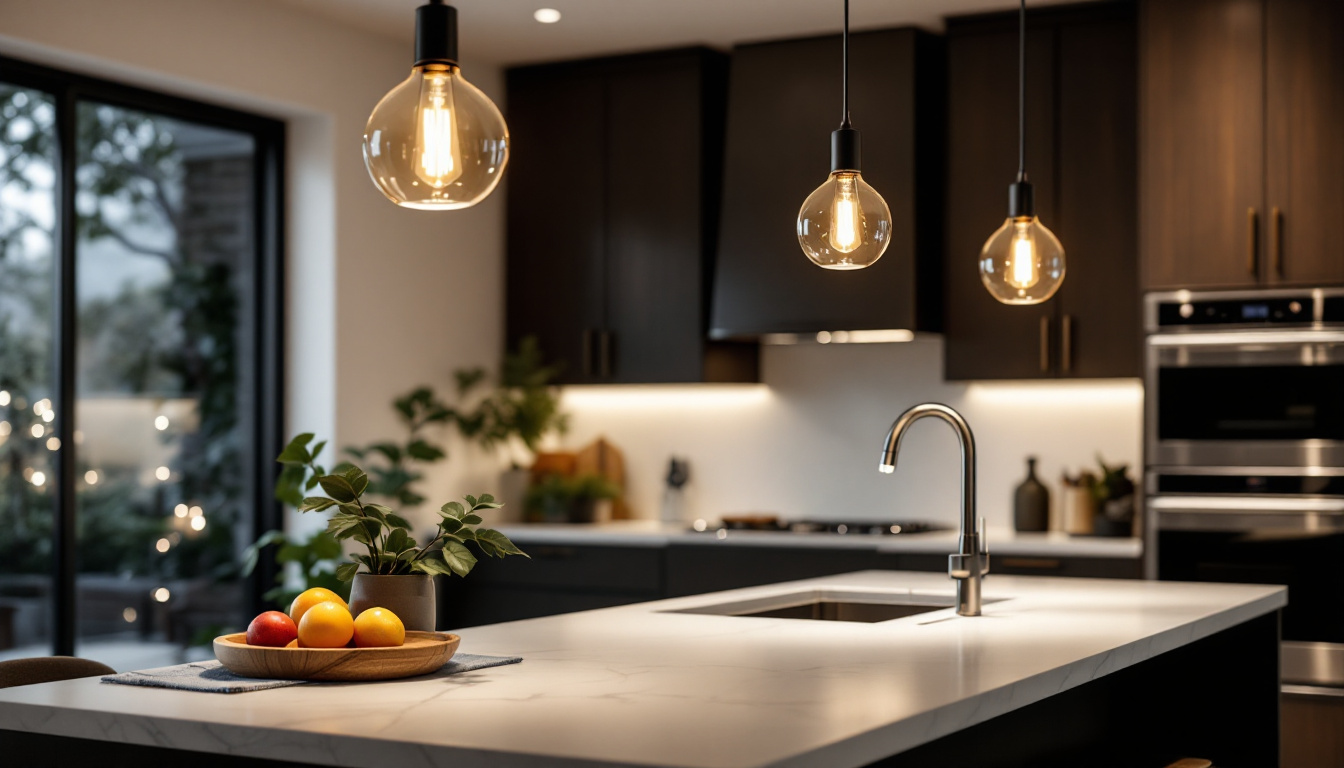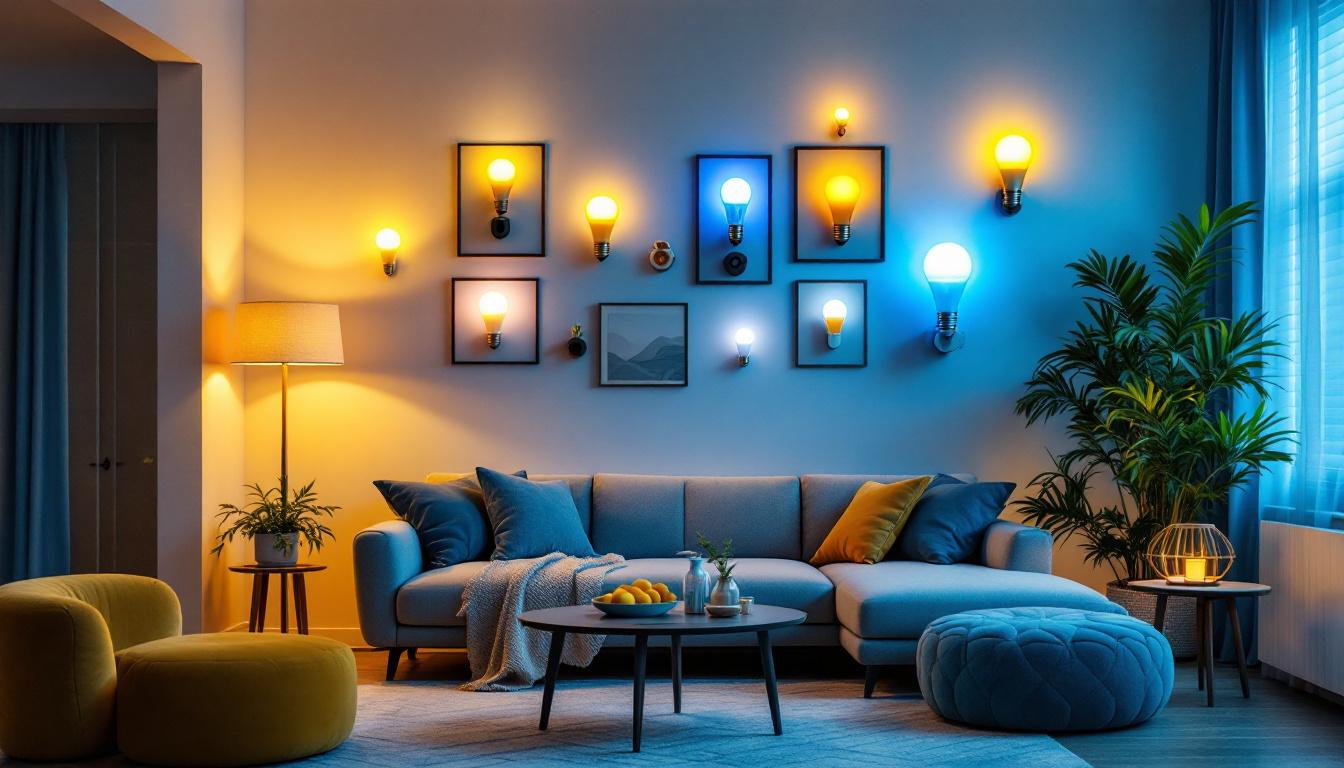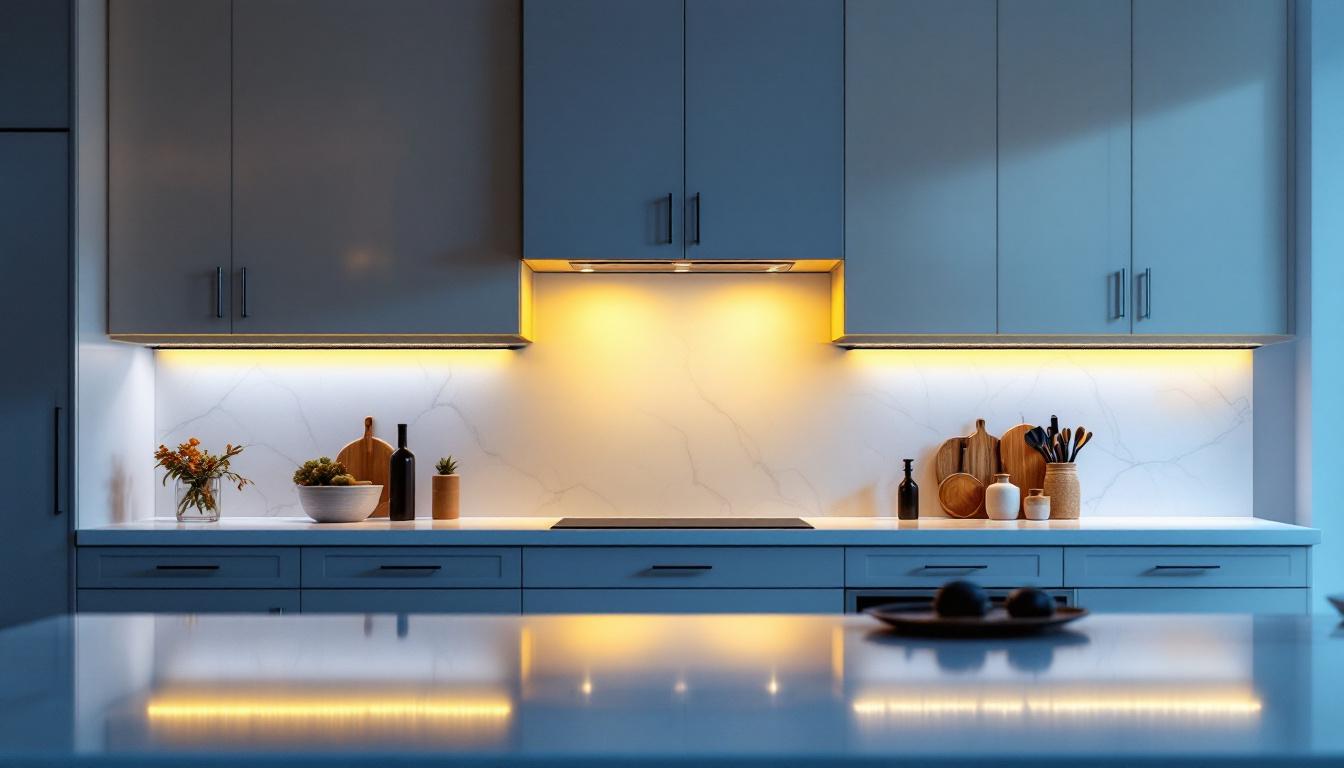
LED (Light Emitting Diode) technology has revolutionized the lighting industry by offering a highly energy-efficient alternative to traditional incandescent and fluorescent lighting. For lighting contractors, understanding the impact of LED light suppliers on energy efficiency is crucial, as it directly influences project outcomes, client satisfaction, and sustainability goals.
Energy efficiency is not just a buzzword; it represents a fundamental shift in how lighting solutions are designed, sourced, and implemented. LED lights consume significantly less power while providing superior luminosity and longevity. This efficiency translates into reduced operational costs and a smaller carbon footprint, making LED lighting a preferred choice across residential, commercial, and industrial sectors.
Moreover, the versatility of LED technology allows for a wide range of applications, from ambient lighting in homes to specialized lighting in commercial spaces such as retail stores and galleries. The ability to produce various color temperatures and dimming options enhances the aesthetic appeal and functionality of spaces, catering to the specific needs and preferences of users. Additionally, advancements in smart lighting systems have further integrated LED technology into modern building designs, enabling automated control and energy management that can optimize lighting usage based on occupancy and natural light availability.
As the demand for energy-efficient solutions continues to rise, the role of lighting contractors becomes increasingly significant. They are not only tasked with the installation of LED systems but also with educating clients about the long-term benefits of transitioning to LED lighting. This includes discussing potential rebates and incentives available for energy-efficient upgrades, which can significantly offset initial costs. By staying informed about the latest trends and innovations in LED technology, contractors can better position themselves as trusted advisors, helping clients make informed decisions that align with their energy efficiency goals and budget considerations.
The quality of LED products supplied plays a pivotal role in achieving energy efficiency. Reputable LED light suppliers invest heavily in research and development to produce lighting solutions that maximize lumen output per watt. This means contractors can install fewer fixtures or use lower wattage bulbs without compromising illumination levels.
Innovations such as smart LED lighting systems, tunable white LEDs, and integrated sensors further enhance energy savings. Suppliers who offer these advanced technologies enable contractors to design lighting systems that adapt to occupancy, daylight availability, and user preferences, thereby minimizing unnecessary energy consumption. For instance, smart lighting systems can automatically adjust brightness based on the time of day or the presence of people in a room, ensuring that energy is only used when necessary. This level of adaptability not only contributes to energy savings but also enhances user comfort and satisfaction, making spaces more functional and enjoyable.
LED light suppliers who adhere to recognized energy efficiency standards and certifications provide contractors with assurance regarding product performance. Certifications such as ENERGY STAR, DLC (DesignLights Consortium), and IEC standards ensure that the LED products meet stringent criteria for energy consumption, durability, and safety.
Contractors sourcing from certified suppliers can confidently recommend LED solutions that qualify for energy rebates and incentives, adding value to their services and encouraging clients to invest in sustainable lighting upgrades. Furthermore, these certifications often reflect a commitment to environmental responsibility, as they promote products that reduce greenhouse gas emissions and lower overall energy demand. By choosing to work with certified suppliers, contractors not only enhance their reputation but also contribute to a larger movement towards sustainability, helping to create a greener future for all. This alignment with environmental goals can be a significant selling point when discussing projects with eco-conscious clients, as it demonstrates a shared commitment to responsible practices and long-term energy savings.
LED lighting typically consumes up to 75% less energy compared to incandescent bulbs and about 50% less than fluorescent lighting. This substantial reduction in energy use not only lowers electricity bills but also reduces the demand on power grids, contributing to overall energy conservation efforts. The shift towards LED technology has become increasingly important as cities and businesses strive to meet sustainability goals and reduce their carbon footprints.
For large-scale projects, such as office buildings, warehouses, and street lighting, the cumulative energy savings achieved through LED lighting can be monumental. Lighting contractors play a vital role in specifying and installing these systems to maximize efficiency gains. Additionally, many governments and organizations offer incentives and rebates for transitioning to LED lighting, further enhancing the financial benefits for businesses. This trend not only promotes energy efficiency but also encourages a broader adoption of green technologies across various sectors.
Another critical factor contributing to energy efficiency is the longer lifespan of LED lights, often lasting 25,000 to 50,000 hours or more. This longevity reduces the frequency of replacements and maintenance interventions, which in turn decreases operational disruptions and associated costs. In environments such as industrial facilities or high-ceilinged spaces, the cost savings from reduced labor and equipment needed for bulb changes can be significant.
Lighting contractors benefit from reduced callbacks and enhanced client trust when installing reliable LED products from reputable suppliers. The reduced maintenance workload also supports sustainability by minimizing waste generated from discarded bulbs. Furthermore, the durability of LED lights means they are less prone to breakage, which is particularly advantageous in high-traffic areas or outdoor settings where traditional bulbs might fail more frequently. As a result, businesses can enjoy a more consistent and reliable lighting solution that not only improves visibility but also enhances safety and productivity in the workplace.
Lighting contractors should evaluate suppliers based on the breadth and depth of their product offerings. A diverse product range allows contractors to select the most energy-efficient LED solutions tailored to specific applications, whether it’s architectural lighting, industrial high bays, or outdoor fixtures. The ability to choose from a variety of styles and functionalities ensures that contractors can meet the unique demands of each project, enhancing both aesthetic appeal and performance.
Customization options, such as color temperature variations, dimming capabilities, and fixture designs, enable contractors to meet client specifications while optimizing energy performance. Suppliers that provide technical support and design assistance can be invaluable partners in this process. Furthermore, the availability of smart lighting solutions, which integrate with IoT devices for enhanced control and efficiency, is becoming increasingly important. This technology not only improves user experience but also aligns with the growing trend towards sustainable building practices.
Reliable delivery schedules and consistent product availability are essential for project timelines. Lighting contractors must partner with LED light suppliers who demonstrate strong supply chain management to avoid delays and ensure project continuity. A supplier’s ability to provide real-time inventory updates and transparent communication regarding lead times can significantly impact a contractor’s workflow, allowing for better planning and resource allocation.
Additionally, suppliers offering after-sales support, warranty services, and training can enhance the contractor’s ability to install and maintain energy-efficient lighting systems effectively. These services contribute to long-term client satisfaction and reinforce the contractor’s reputation for quality workmanship. Moreover, suppliers that facilitate ongoing education about the latest advancements in LED technology and energy-saving practices empower contractors to stay ahead in a competitive market. This commitment to partnership not only fosters loyalty but also encourages innovation in lighting solutions, ultimately benefiting both contractors and their clients.
Switching to LED lighting significantly reduces greenhouse gas emissions due to lower electricity consumption. For contractors involved in sustainable building projects or retrofits, specifying LED lighting aligns with environmental regulations and green building certifications such as LEED and BREEAM.
The environmental benefits extend beyond energy savings, as LEDs contain no mercury and have a smaller ecological footprint during manufacturing and disposal compared to fluorescent lamps. Furthermore, the longevity of LED lights—often lasting up to 25,000 hours or more—means that fewer replacements are necessary, which translates to less waste in landfills. This durability not only conserves resources but also minimizes the environmental impact associated with the production and transportation of replacement bulbs.
Governments and utility companies worldwide offer incentives, rebates, and tax credits to encourage the adoption of energy-efficient LED lighting. Lighting contractors who stay informed about these programs can help clients reduce upfront costs and improve return on investment.
Market trends indicate a growing demand for smart and connected lighting solutions that optimize energy use through automation and data analytics. LED light suppliers at the forefront of these innovations provide contractors with competitive advantages in a rapidly evolving marketplace. Additionally, the integration of IoT (Internet of Things) technology into lighting systems allows for enhanced control over energy consumption, enabling businesses to monitor usage patterns and adjust settings accordingly. This not only leads to further cost savings but also fosters a more sustainable approach to energy management, making it an attractive proposition for both contractors and clients seeking to enhance their environmental stewardship.
For lighting contractors, the choice of LED light suppliers is a strategic decision with far-reaching implications for energy efficiency, project success, and client satisfaction. Partnering with suppliers who deliver high-quality, innovative, and certified LED products ensures that lighting installations achieve optimal energy savings and performance.
By leveraging supplier expertise, embracing technological advancements, and aligning with sustainability goals, contractors can position themselves as leaders in energy-efficient lighting solutions, driving positive environmental impact and economic benefits for their clients.
Ready to elevate your lighting projects and exceed your clients’ expectations? Choose LumenWholesale for your LED lighting supply needs and experience the difference that quality, affordability, and convenience can make. Our spec-grade lighting products are designed to meet the highest industry standards, ensuring energy efficiency and performance that aligns with your sustainability goals. With unbeatable wholesale prices, free shipping on bulk orders, and no middleman markups, we provide the value you deserve. Discover wholesale lighting at the best value and make LumenWholesale your trusted partner today.

Discover how strategic lighting landscape designs not only beautify outdoor spaces but also significantly enhance safety.

Discover the essentials of modern pendant light fixtures for kitchens, focusing on compliance and key insights every lighting contractor should know.

Discover how 24 LED bulbs can transform your lighting solutions with energy efficiency, enhanced brightness, and cost-effectiveness.

Discover how wire under cabinet lighting can transform your business and help you secure more lighting contracts.